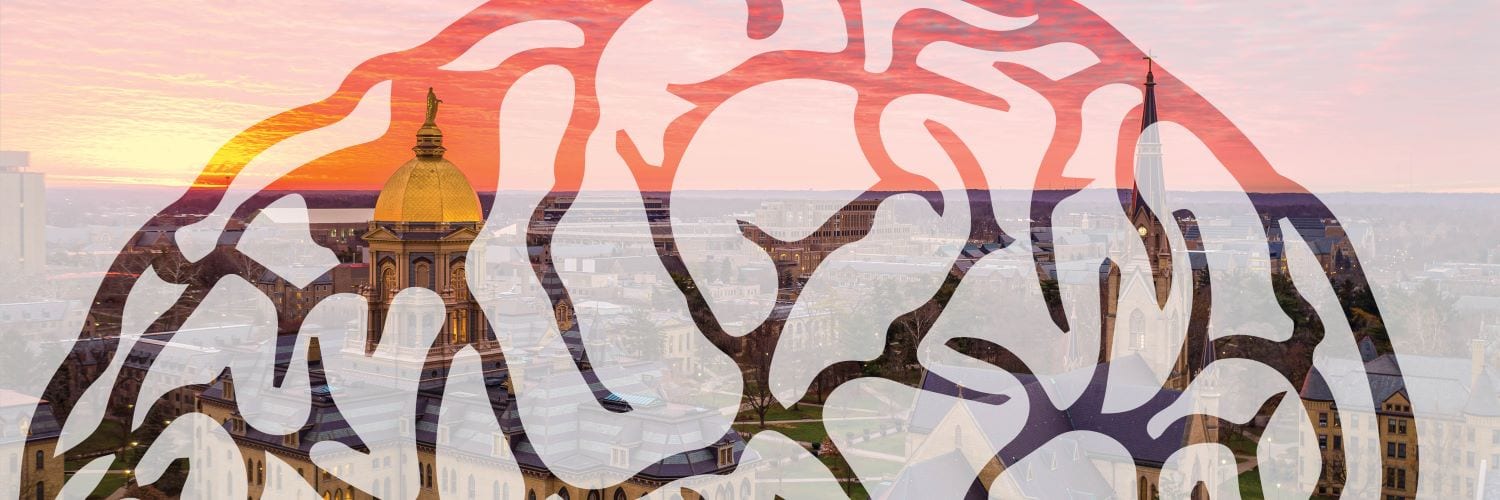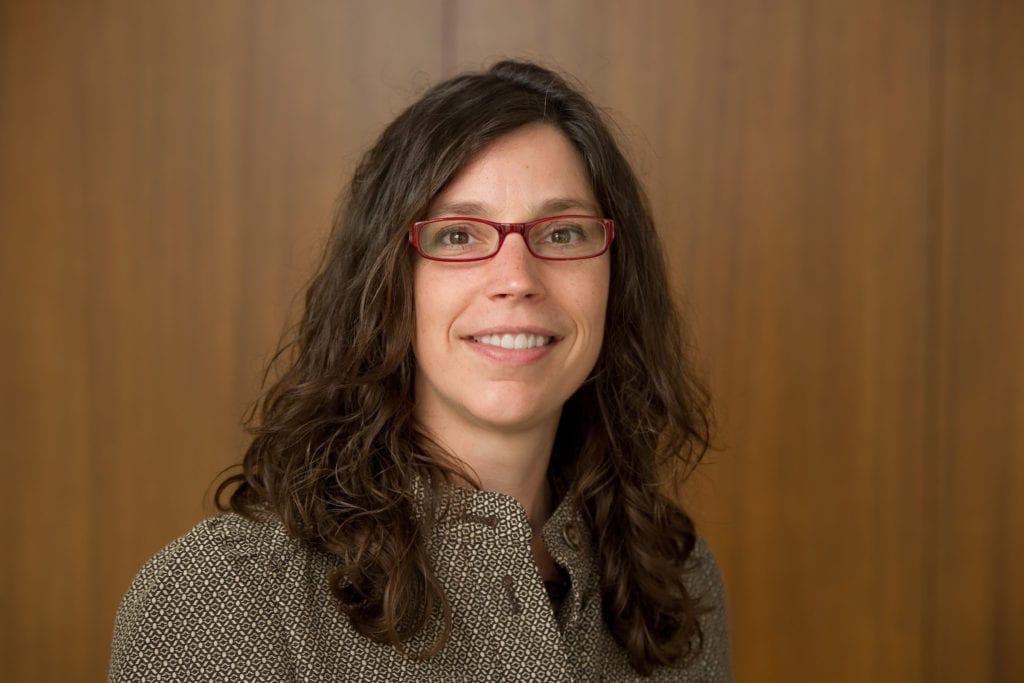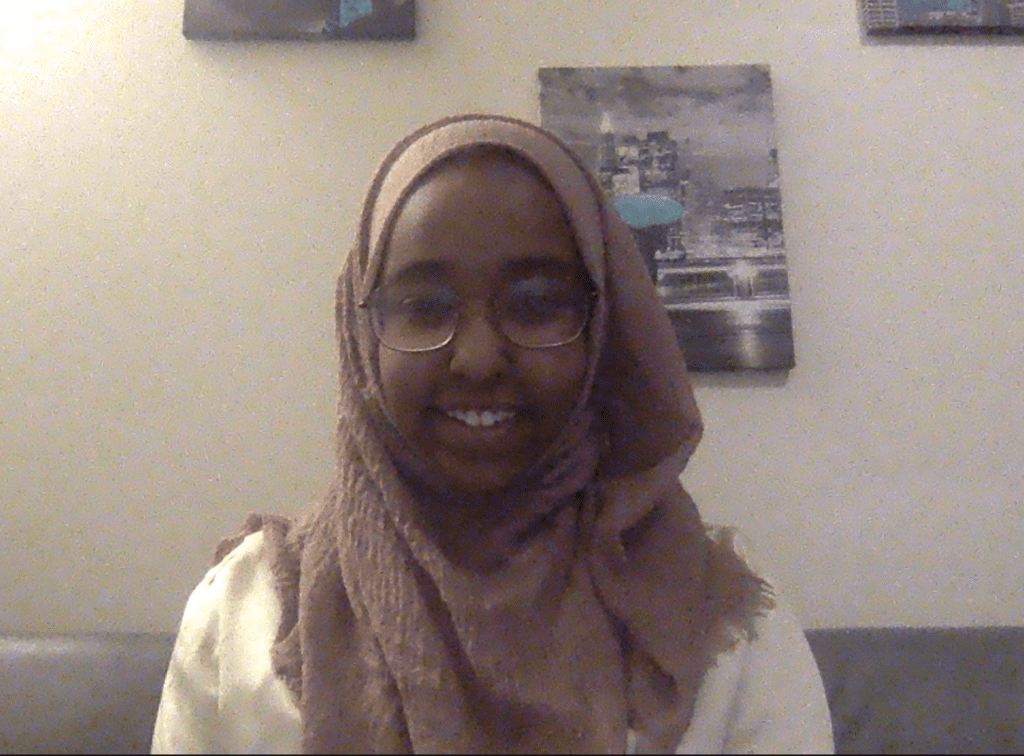What is neuroscience, and why are relationships so important?

What is neuroscience, and why are relationships so important to how our brains function? Researchers who study neuroscience and behavior have discovered that one of the biggest moderators of human health is having good human relationships. After a brief overview of what neuroscience is, Notre Dame faculty members Nancy Michael and Connie Snyder Mick will discuss how the field can naturally integrate with the mission of Our Lady’s University, through the lived portions of spirituality. They will be joined by the University of Notre Dame sophomore Arafat Aliyi to discuss how understanding neuroscience and living your faith can provide you with a compassionate perspective about others.
Meet the Faculty Host
Presented by Nancy Michael
Nancy Michael
Associate Teaching Professor, Neuroscience and Behavior

Nancy Michael’s commitment to neuroscience and behavior aims to mitigate the impact of toxic stress on individuals and communities.
“Everything I’ve learned since graduate school has changed how I see and engage with the world around me; the way I teach, parent, talk to the cashier at the store and even care for myself,” said Michael. “By developing our understanding of our brains and how experiences shape our brain and behavior, we are offered a deeper understanding of ourselves.”
Meet the Guest
Presented by Nancy Michael
Connie Snyder Mick
Director, Academic Affairs; Director, Poverty Studies Interdisciplinary Minor, Center for Social Concerns

Connie Snyder Mick teaches students about the causes, consequences, and effective responses to poverty through community-engaged courses that connect theory to practice. As editor-in-chief of the Journal of Poverty and Public Policy, she advances evidence-based research that guides public policy to reduce poverty around the world.
“Poverty surrounds us and yet it can remain hidden unless we take the time to understand why it persists in a land of plenty,” Mick said. “Poverty studies builds awareness so that we take informed action to help all people live up to their fullest capabilities.”
Meet the Guest
Presented by Nancy Michael
Arafat Aliyi ’23
Arafat Aliyi ’23, neuroscience and behavior major with a poverty studies minor, enjoys neuroscience because she can apply neurobiological concepts to topics of history, international development, and more.

“As social organisms, humans have an intrinsic implicit bias that is formed from our observed and learned environment,” Aliyi said. “By being able to neuroscientifically identify our own implicit biases, while also being equipped with the correct tools to actively combat them, students experiencing a university campus life can learn to better face discussions on race and obtain an enriching campus experience fueled by various student perspectives.”
What is neuroscience?
Presented by Nancy Michael
Learn about the cycle of environment on brain function and development. How do we teach neuroscience and behavior at Notre Dame so students understand it through a “living faith” model?
View the Event
Presented by Nancy Michael
Subscribe to the ThinkND podcast on Apple, Spotify, or Google.
Featured Speakers:
- Connie Snyder Mick, Director of academic affairs and Director, Poverty Studies Interdisciplinary Minor, A&L University of Notre Dame
- Nancy Michael, Associate Teaching Professor and Director of Undergraduate Studies for Neuroscience and Behavior, Science University of Notre Dame
Additional Resources
Presented by Nancy Michael
- Books for further reading : “The Deepest Well,” “The Body Keeps the Score,” “The Strange Order of Things: Life, Feeling and the Making of Cultures,” and “My Grandmother’s Hands”
- Podcasts/films for further review: Neuroscience and Behavior for the Common Good
- How childhood trauma affects health across a lifetime (TED Talk with Nadine Burke Harris)
